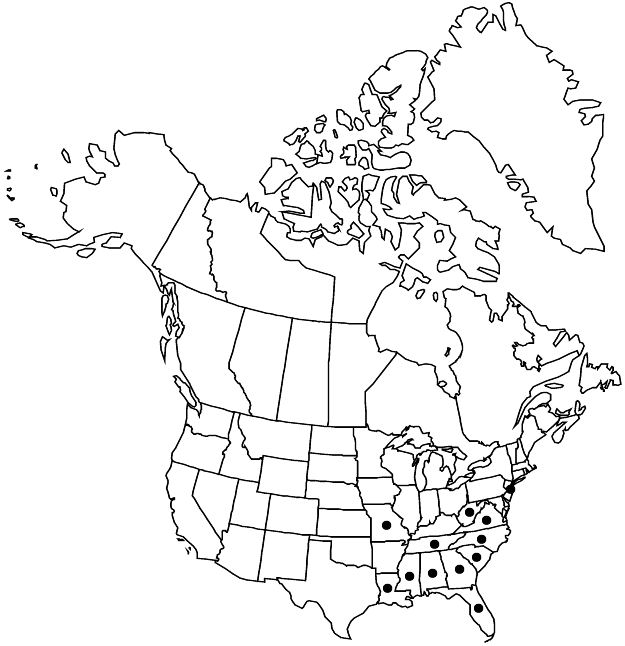Oxalis colorea
Just's Bot. Jahresber. 32(1): 410. 1905.
Herbs perennial, caulescent, cespitose or weakly colonial, rhizomes or stolons sometimes present, short, bulbs absent. Aerial stems usually 1–4 from base, mostly erect, 5–15 (–25) cm, often becoming woody proximally, hirsute-pilose proximally, hairs curved, irregularly spreading or slightly deflexed, sometimes ± antrorse on peduncles and pedicels, nonseptate. Leaves basal and cauline; stipules oblong, margins narrowly flanged or without free portions, apical auricles absent; petiole 2–7 cm; leaflets 3, green, obcordate, 3–8 mm, lobed 1/5–1/3 length, surfaces usually sparsely strigose-hirsute, sometimes glabrate, oxalate deposits absent. Inflorescences usually umbelliform cymes, sometimes irregular cymes, (1–) 2–4 (–5) -flowered; peduncles (3–) 5–10 (–15) cm. Pedicels strigose, hairs short, curved antrorsely. Flowers tristylous, well above level of leaves; sepals 3.5–5 mm, apices without tubercles; petals yellow to orange-yellow, usually with prominent, rarely faint, red lines proximally, very rarely lines absent, 9–15 mm. Capsules angular-cylindric, abruptly tapering to apex, 6–16 mm, glabrate to puberulent or sparsely hirsute-strigose, hairs short, sometimes only along angles or at apex. Seeds brown, transverse ridges usually white.
Phenology: Flowering (Mar–)Apr–May(–Oct).
Habitat: Longleaf pine, longleaf pine-scrub oak, pine-mixed hardwood, hardwood, beech-magnolia, and alluvial woods, shale slopes, sandstone outcrops, granite outcrops, limestone, river and stream banks, hillsides and ridges, bluffs, ravines, clearings, roadsides.
Elevation: 30–300 m.
Distribution

Ala., Fla., Ga., La., Miss., Mo., N.J., N.C., S.C., Tenn., Va., W.Va.
Discussion
Oxalis colorea is common in southeastern Alabama, Mississippi, and probably the northern half of Georgia; outliers apparently occur in a wider area toward the north and northeast. Scattered variants from widely scattered localities in Alabama, Mississippi, and Tennessee, from within the geographic range of O. colorea, have the habit and prominently red-lined petals of O. colorea; stem hairs are relatively long but are antrorsely oriented, as in O. florida.
Selected References
None.
Lower Taxa
"alternating" is not a number."/5" is not declared as a valid unit of measurement for this property.